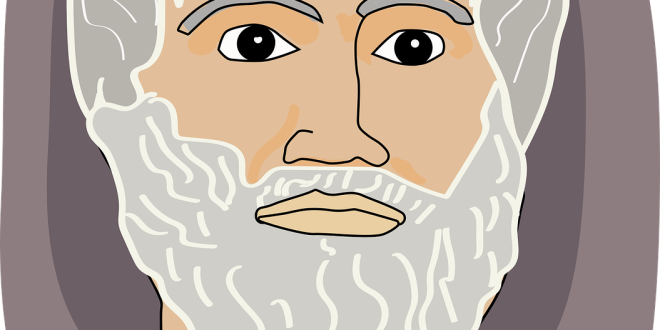Basic life topics like happiness have been the subject of discussion, debate, and attempts to define for millennia. Ancient philosophers like Aristotle, Socrates, and Plato devoted a large portion of their lives to attempting to comprehend and explain the fundamental principles underlying particular life difficulties. Their disagreements have persisted throughout the years as new theories have been investigated, examined, and contrasted in the context of contemporary society.
Aristotle’s philosophy of happiness draws our attention to a particular issue. What can a long-ago Greek philosopher teach us about happiness in the twenty-first century? In order to respond to this query, it is important to understand who Aristotle was, what he had to say about pleasure, and how to relate his ideas to the modern-day experience of happiness.
What Does Aristotle’s Philosophy Of Happiness Mean For Us Today?
Greek philosopher Aristotle lived from 384 to 322 B.C. He dissected and assessed complex subjects like logic, biology, ethics, and aesthetics, to name a few. Aristotle studied under Plato, and because of the esteem in which his works and teachings were held, he became known as “The Philosopher” in the west and “The First Teacher” in Arabic philosophy.
He was the son of parents who came from established families in medicine. Aristotle’s parents passed away while he was a young child, and at the age of 17, he enrolled at Plato’s Academy, where Plato noticed that he was a talented pupil. He studied under Plato for 20 years, which led to significant discussion and critique of Plato’s views. Some people think that Plato learned just as much from his pupil as the pupil did from his master. Aristotle made important and enduring contributions to science and is still a major force in contemporary academic curricula.
Principles And Theories From Aristotle On Happiness

“Nicomachean Ethics” is one of Aristotle’s best-known writings. His political views and his ideas about happiness were inextricably linked. According to Aristotle, leaders of nations care about the contentment of their citizens. Happiness and Aristotle both assert that when enacting new laws, good, moral statesmen always kept their constituents’ happiness and wellbeing in mind.
Aristotle stressed in his writings that happiness must be a goal in and of itself, not only a means to an end. Understanding personal happiness is a prerequisite for understanding happiness in society.
Someone might say, “If I won the lotto,” when asked what would truly make them happy. We can interpret that literally and think of them as having unlimited resources. How would that affect their quality of life? Typically, it would entail a cozy home, a brand-new car, the chance to travel, expensive jewelry, and a more opulent way of life in general. Additionally, your acquaintance would feel more at ease knowing that they wouldn’t have to worry about covering their daily expenses.
Overall, wealth is a means to a goal, even though it would allow someone to enjoy life with fewer worries. It isn’t a goal unto itself. Riches and wealth don’t make individuals happy by themselves. Happiness has much deeper roots than that.
Aristotle made a strong connection between happiness and its supporting virtues. He examined the relationship between virtues and the idea of the soul. His philosophy on happiness was to teach people how to distinguish between what they believed would make them happy and what actually made them happy.
In this process, perceptions of the good are connected to how the good connects to the goal of an action. He reasoned that the outcome was more important than the search for it. In order to be happy, one must desire good above all else and want it for its own reason.
Aristotle distinguished between the three fundamental components of the soul—nutritive, perceptual, and rational—and connected them with virtue and knowledge.
All living things, including both humans and plants, have a nutritive soul. This aspect of our soul is too fundamental to be associated with any kind of virtue. Both people and animals have a portion of their souls that is perceptive, and it is correlated with moral virtues. In humans, the reasoning aspect of our soul corresponds to our theoretical virtue, which we can further separate.
According to Aristotle, the practical, calculative part of our rational selves is tied to prudence, while the creative, calculative side is related to the arts. Our intellectual souls’ theoretical parts have a connection to knowledge and science. Ironically, present scientists’ understanding of the brain and Aristotle’s explanation of the components of the soul are very similar.
Virtue is even harder to describe than happiness, which is challenging enough on its own. It is best described by Aristotle as our personality and way of thinking. He associated the qualities of character with any experience of joy or suffering. He had the opinion that we develop good character by being around it and that we may use reason to decide whether or not to act on it.
Aristotle also stressed the value of virtue in his teachings when it comes to controlling both intellect and emotion and finding a balance between insufficiency and excess.
The virtue of thought and the virtue of moral character were treated equally by Aristotle. He came to the conclusion that the rational soul possessed the virtue of thought. Aristotle emphasized the value of practical wisdom and asserted that it required the capacity for reason. According to him, higher thinking necessitates focusing on what is constant and taking into account the interplay between virtues and concrete, mutable concerns as they relate to what individuals want and how they behave.
Aristotle essentially held the view that attaining the best life needs both serious contemplation and understanding. Adopting these ideas enables us to think more abstractly and comprehend cause and effect on a deeper level.
How Do Aristotle’s Teachings Relate to the Modern World Question of Happiness?
Have you ever considered what matters most to you in life? That served as the foundation for Aristotle’s ideas and teachings on the subject of happiness.
According to Aristotle, virtue is the only path to happiness. He distinguished clearly between sensual pleasures or vices and happiness. If we apply Aristotle’s lessons to the current world, he would contend that we would be happier if we spent more time learning, having the guts to speak up for what we believe, and being kind and patient with others than we do on sex, money, entertainment, vacations, and our cell phones.

Aristotle observed that most people have a multitude of positive character traits including generosity, kindness, empathy, and friendship when examining human nature. When we assess moral issues and make decisions, our character traits are taken into consideration. According to Aristotle’s idea, we discover satisfaction through sacrificing ourselves for the good of others.
Aristotle believed that before anybody can pursue their ultimate objective of happiness, they must be “sufficiently supplied with external commodities.” That’s not to argue that he thought that only those who are affluent may experience true happiness. He was worried that those who lacked the most fundamental material comforts, like food and shelter, would not be able to be objective enough to achieve a level of individual satisfaction. He held that before we can intellectually and emotionally be at a place where we may cherish non-essential pleasures like healthy relationships, practical knowledge, and charity, we must first have our basic needs met.
We all occasionally doubt our own judgment and choices. In the quest of happiness, Aristotle exhorted his followers to rely not only on their intellectual and practical virtues, but also on their virtue of character. He thought that people have to look for excellent and noble people who show good character in all they do. When we face moral conundrums, we should seek advice from these individuals. The same may be said to apply today.
The ultimate virtue we can strive for, according to Aristotle on happiness, is contemplation, together with knowledge and practical wisdom. He cherished philosophical thought and believed that his personal path to happiness was guided by the genius that resided inside him and his capacity for rational thought. Young people today should ponder and learn more instead of texting and using social media, is what Aristotle would say today.
Ancient wisdom goes beyond entertaining rhetoric. They might stimulate a lot of thought in us. The lessons that Aristotle taught are still relevant in many ways. Simply put, we must adapt it to a different setting, time period, and social structure.
Source: betterhelp.com
 MENTPSYCH Meet Your Self
MENTPSYCH Meet Your Self




